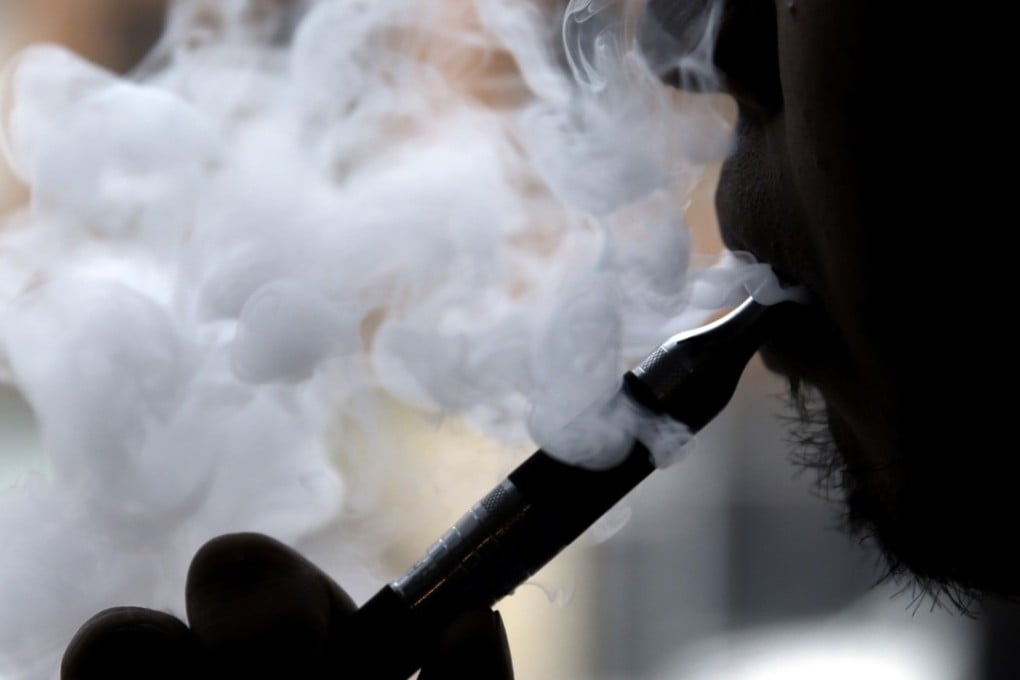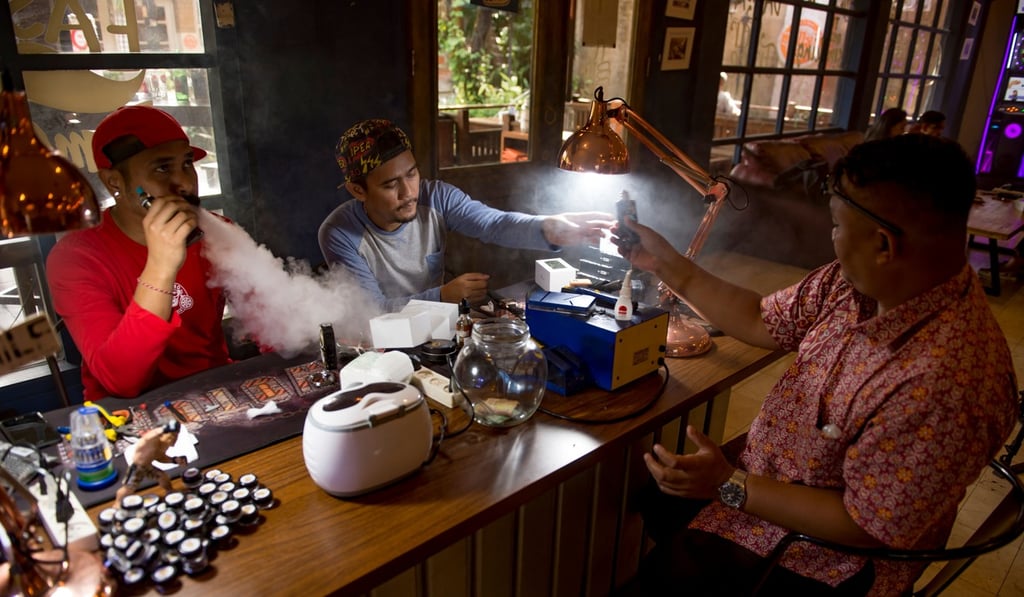Indonesia accused of favouring big tobacco as vaping industry faces giant tax increase
The government is proposing a 57 per cent duty on e-cigarettes in the hope that it will stop younger people from using them

Chain-smoking Indonesia is moving to stub out its booming e-cigarette sector, sparking criticism that the government is siding with giant tobacco firms at the expense of public health.
The Southeast Asian nation has one of the world’s highest smoking rates – some 65 per cent of adult men smoke – with a pack costing just US$2.
Cigarette advertising is everywhere across the vast archipelago which once had the dubious distinction of being home to one of the world’s youngest nicotine addicts – a chain-smoking toddler who made global headlines in 2010.
Smoking cessation products are tough to find and Indonesia stands out as a key growth market for global tobacco firms increasingly shut out of countries with tough antismoking legislation.
Despite its tobacco-haven status, e-cigarette cafes have been popping up across Indonesia in recent years amid debate over their safety.
